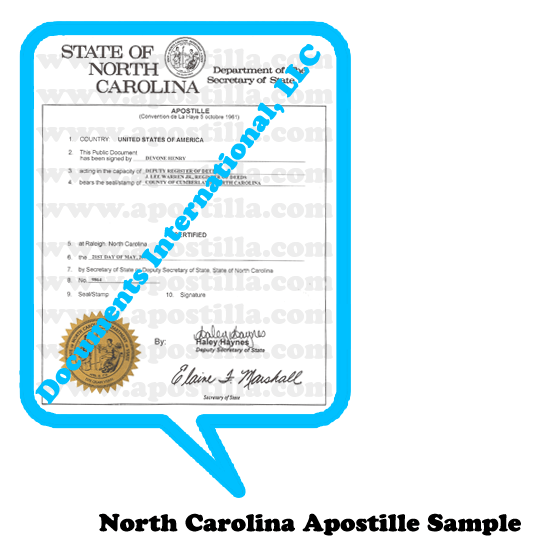Comprehending the Apostille Refine: A Comprehensive Guide to International Paper Authentication
Navigating the complex landscape of international file verification can be discouraging without a clear understanding of the apostille process. This guide thoroughly lays out the necessary steps, from determining which records call for certification to submitting them for verification by the Competent Authority. Realizing the importance of an apostille and recognizing prospective risks, such as insufficient entries and language obstacles, can dramatically streamline the authentication journey. What precisely defines an apostille, and why is it so important for papers predestined for Hague Convention nations? These concerns create the structure of our expedition into this important lawful procedure.
What Is an Apostille?
An apostille is a main accreditation that confirms the authenticity of a record for usage in one more country. This certification, issued by a designated authority in the nation where the paper came from, guarantees that the file is recognized as legitimate and legit in the worldwide arena. The procedure of getting an apostille includes several actions, consisting of the verification of the document's trademarks, seals, and stamps by suitable governmental bodies.
The apostille works as a worldwide acknowledged form of verification, made feasible by the Hague Convention of 1961. This treaty, officially called the Hague Convention Eliminating the Requirement of Legalisation for Foreign Public Records, standardizes the process of paper accreditation amongst member nations. The apostille itself is a standard certificate that has particular information, such as the providing authority, the native land, and the date of issuance.
It is very important to note that not all records are eligible for an apostille. Typically, public papers like copyright, marital relationship licenses, court orders, and educational diplomas certify for this certification. Personal documents, such as contracts and arrangements, may call for notarization and extra actions to certify.
Significance of Apostille
Recognizing what an apostille is sets the phase for valuing its importance in global dealings. houston tx apostille. An apostille, essentially a kind of certification issued by a designated authority, validates the credibility of a file for usage in international countries that are notaries to the Hague Apostille Convention. This standard process removes the demand for additional legalization by consular offices or consular offices, thereby simplifying worldwide transactions
It guarantees the integrity and approval of crucial records-- such as birth certifications, marital relationship licenses, and instructional diplomas-- throughout boundaries. For services, it assists in the smooth conduct of worldwide trade, mergers, and acquisitions by providing a relied on approach of record confirmation.
Additionally, an apostille improves legal safety and security and compliance. Federal governments and establishments can with confidence rely upon the authenticity of documents birthing an apostille, minimizing the danger of scams and misrepresentation. Hence, the apostille functions as an important tool in promoting international teamwork and depend on. Its role in cultivating reliable and protected international purchases highlights its important value in today's interconnected globe.
Documents That Call For Apostille
When taking part in international transactions or lawful matters, particular records commonly require the authentication given by an apostille. This ensures their recognition and acceptance in countries that are notaries to the Hague Apostille Convention. Commonly, personal files such as birth certifications, marriage certificates, and death certificates require an apostille, specifically when they are utilized for processes like migration, marital relationship abroad, or international probate matters.
Educational files are one more group regularly calling for apostilles. Diplomas, transcripts, and academic documents frequently need this authentication for functions such as seeking more education and learning, work, or specialist licensing in an international country (houston tx apostille). This step guarantees that the records are identified as genuine and legitimate
Legal records, consisting of powers of attorney, affidavits, and court orders, additionally commonly require apostilles. Organization records such as certifications of consolidation, laws, and business agreements might need an apostille to assist in worldwide profession, establish foreign branches, or engage in cross-border legal proceedings.
Actions to Get an Apostille

Obtaining an apostille involves a multi-step process that ensures the authenticity and approval of your records in international nations. The preliminary step is identifying which documents require an apostille. houston tx apostille. Usual records consist of copyright, marriage licenses, scholastic records, and business files
Once recognized, the record needs to be accredited by the appropriate releasing authority. This could include notarization by a notary public or confirmation by a regional or state official, relying on the kind of file. After certification, the paper ought to be submitted to the marked Competent Authority in the file's native land. In the United States, as an example, this is normally the Secretary of State's workplace for every state.
The submission procedure typically calls for a completed application, the original paper, and a fee. Some territories might use the alternative of expedited handling for an added cost. Upon effective confirmation, the Competent Authority will attach the apostille certification to the file, thereby verifying its credibility.
Common Difficulties and Solutions
Navigating the apostille process can provide a number of usual obstacles that, if not effectively addressed, may delay or complicate file authentication. Each nation has certain demands for the kinds of records that Full Article can be apostilled, and any kind of inconsistency from these can result in denial.
An additional usual obstacle is recognizing the varied handling times. Handling times can vary dramatically in between nations and also in between various regions within the exact same country. It is necessary to represent these variations when planning the apostille process to stay clear of unanticipated hold-ups.
Furthermore, language barriers can position significant barriers. Records in an international language commonly need certified translations, and any errors in translation can bring about additional problems. Engaging a specialist translation solution can reduce this threat.

Conclusion
Grasping the apostille procedure significantly improves the efficiency of international document verification. By understanding the try this out requirement of recognizing and certifying required records, and browsing the submission to the Competent Authority, the procedure ends up being much look at more info more manageable. Understanding of common obstacles, such as incomplete entries and language obstacles, even more help in stopping potential hold-ups. Guaranteeing documents are effectively apostilled facilitates their approval in Hague Convention signatory countries, thereby sustaining seamless worldwide legal and management treatments.